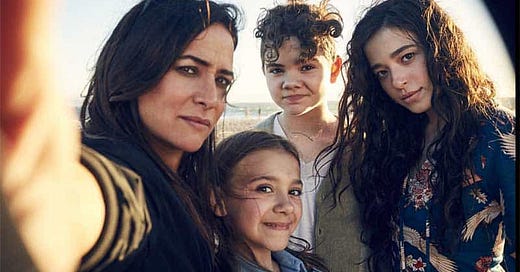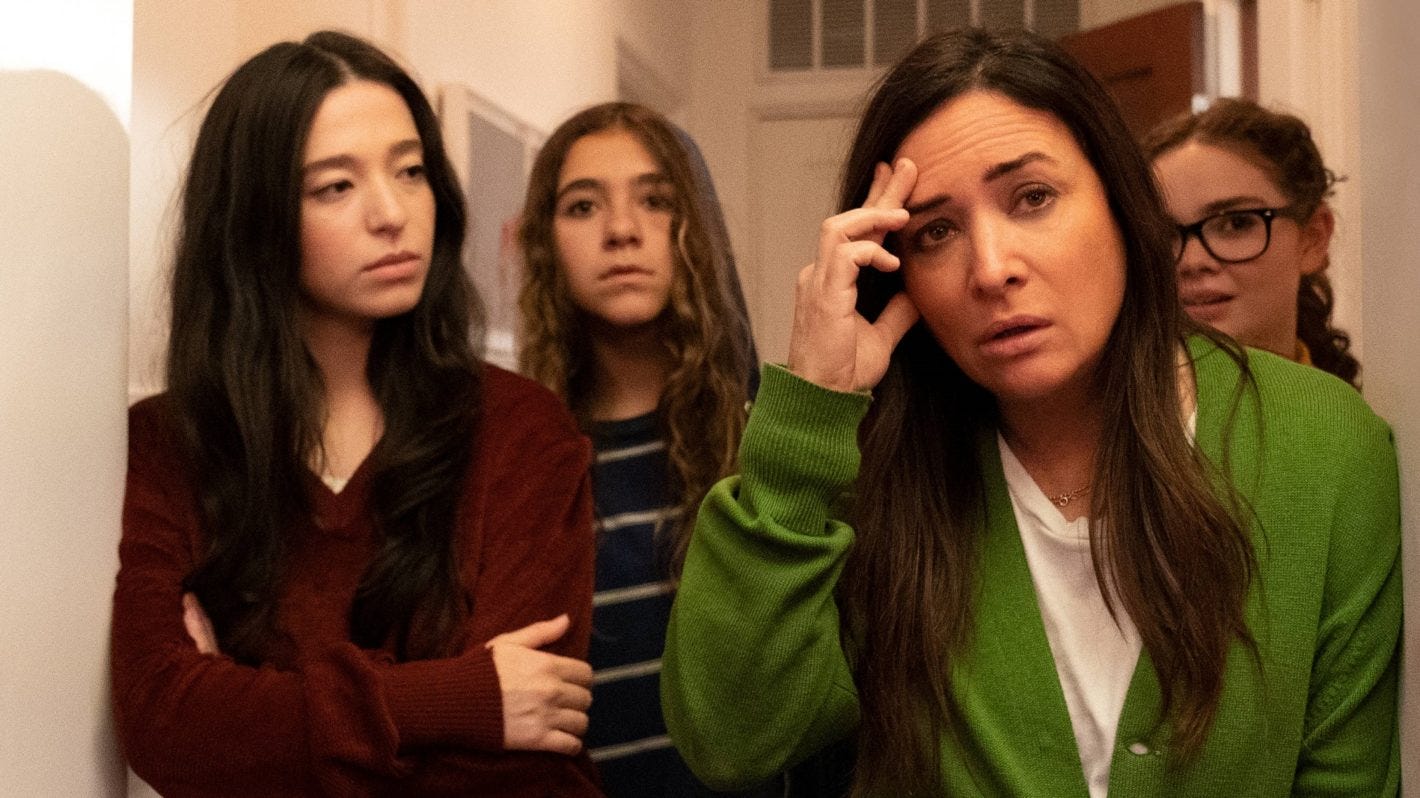The Meaning of Life According to 'Better Things'
Pamela Adlon's masterpiece serves as an antidote to our hyper-masculine times.
In this series of posts, I’ll be looking at the ultimate messages of some of TV’s most meaningful shows. First up, Pamela Adlon’s low-key matriarchal dramedy.
In the series finale of Better Things, Duke Fox, the youngest teenage daughter of main character Sam Fox, says, unexpectedly, to her single mom, “You know something? You’re … you’re a really good person.” After Sam expresses disbelief at this compliment, Duke elaborates: “You are. You have … you have a way of bringing people together and making people feel good, and just … I don’t know, I like it. I like you. I like the … I like the way you live your life.”
If you think about the title of the series, this quote tells us what it all means: Sam wants better things for her daughters, the way so many parents do; but she doesn’t want this in the capitalistic, everyone-gets-richer way. She also wants better things for herself, her friends, and the world, and she’s found her way of working toward that. She has a talent for bringing people together and making people feel good, and she uses it well. When you watch the show, you feel this permeating through it all—so many sumptuous meals with friends and family, so many jokes bringing everyone together. A nuclear family isn’t necessarily the answer, this show says. A found family is.
This makes Better Things an antidote to the very shows, particularly of the ‘50s Father Knows Best variety, that MAGA Republicans want you to think of when you think about the “great again.” Family as patriarchal, heteronormative, little cogs of capitalism. Better Things is a chill, quiet revolutionary.
Airing from 2016-22, Better Things follows Sam (played by co-creator Pamela Adlon), a working actress, as she raises three daughters and navigates her relationship with her aging mother, who lives next door. She gathers around her a coterie of quirky-but-good friends and only occasionally dates. Some stars show up as themselves, Sam’s colleagues or Hollywood friends, including Julie Bowen, Bradley Whitford, David Duchovny, and Mark Feuerstein. While Sam occasionally clashes with her mom and kids—particularly the rebellious oldest, Max, played by newly minted Oscar nominee Mikey Madison—they always support each other in the end, forming a portrait of female strength. While other shows might “tackle” distinctly feminine issues such as abortion and menopause, Better Things simply has characters who happen to experience these things in authentic ways.
Better Things shows us that a woman can build a beautiful life for herself and her children without a man. (That said, men can take plenty of inspiration from it, too.) She can have a sumptuous and satisfying midlife without worrying whether a man will ever join her, a sight we rarely see on television. Sometimes the series resembles a cooking show, so delicious are the sequences in which Sam cooks in her beautiful-but-lived-in kitchen for everyone. This can feel gratuitous, but it serves a purpose, showing in tantalizing color what a nourishing existence she has created.
Not much happens, though, except that the girls grow up and Sam and her mom get older. There are no massive crises or breakthroughs, no real character development for Sam. (It is implied that she doesn’t really need it, because she is a grown and competent woman.) Adlon insists that she is not Sam Fox, though she co-created, co-wrote, and directed the series, and she is a single mom to three daughters and lives next door to her own mother.
Better Things began in the fall of 2016, and things have changed massively since then—but also not. Donald Trump was elected to his first term as president, and Adlon’s co-creator, Louis C.K., went down in the subsequent #MeToo movement. Then again, Trump was just re-elected, and it’s not clear that the #MeToo movement heralded lasting change. (We have, after all, experienced the onslaught of Diddy accusations and targeted PR campaigns leveraging “feminism” against the likes of Amber Heard and Blake Lively.) Better Things presented us with a better way, a matriarchy that may not be orderly but was always kind, compassionate, and supportive.
Vulture declared Better Things “one of TV’s best things.” Critic Jen Chaney wrote, “It is rare for a TV series to shine a full, unfiltered light on the experiences of middle-aged women. And Just Like That … tried to but mostly whiffed on the opportunity to show women in their 50s living complicated, sometimes challenging, but nevertheless fulfilling lives.”
In the show’s affecting finale, Sam says, “I like where I am. I’m happy. I’m happy. I’m happy.” Adlon and her series are so comfortable, so laid-back, that it’s easy to miss the radicalness of this statement. Here we have a middle-aged woman, a single one at that, who is confident in herself and content in the life she built. Adlon told The New York Times: “That’s one of the things I was clear to the network about. I was like, ‘It’s not this dirty single mom trying to get some.’ It was not about that.”
Adlon encapsulated the show’s philosophy as “Life is funny, and we can’t stop living because things are awful.”
I’ve often joked that the problem with Lost was that it implicitly promised to tell us the meaning of life by the end, and (I thought) all but explicitly promised to at least deliver the answers to all of its own mysteries. And in the end it did neither. Better Things did the opposite: It did not promise the meaning of life, nor did it bring up even one nagging mystery to solve. At times, it seemed to barely have a plot. But in the end, it delivered as good an answer as anyone ever has to the question of what we’re supposed to be doing here on this planet. And it’s a lodestar that comes in particularly handy now.






I loved this. And Better Things is truly a superb antidote for these times.
This was great. Thank you for it. This show is the absolute best.